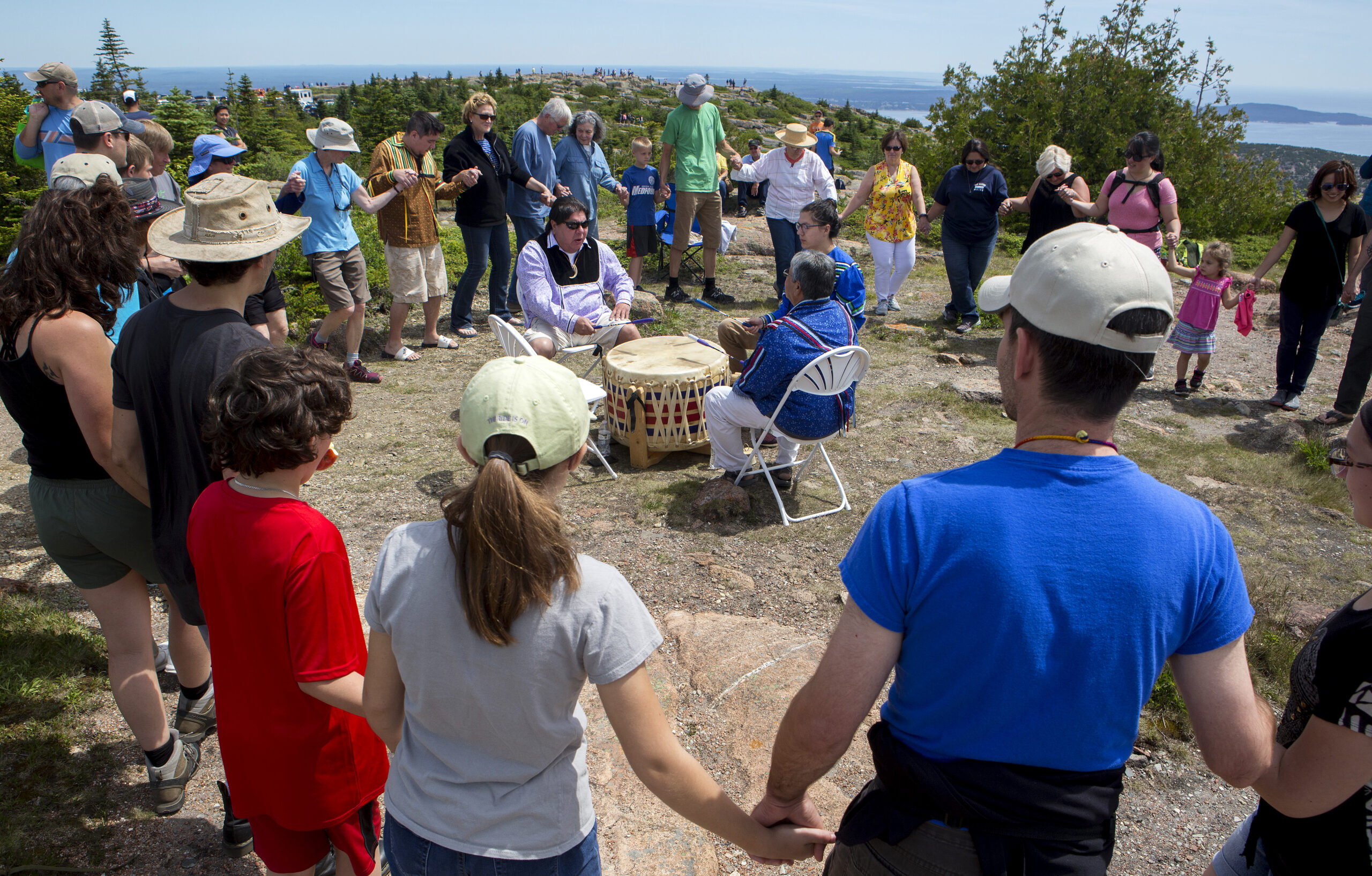Acadia’s Cultural Connections in the Park program hosts Maine Native artists, musicians, and craftspeople for weekly summer demonstrations
March 19th, 2021
March 19th, 2021
On a breezy summer day in 2010, I stood in the parking lot of the Jordan Pond House Restaurant scanning for the first sight of David and his red pickup truck. He was never hard to miss —a riot of black curls, a wide smile you could see for miles, and a beautiful handmade birchbark canoe strapped to his roof.
When he pulled up, I headed to the cab to grab his hand tools and baskets while restaurant staff graciously helped to lower his canoe from the truck. David portaged it to the lawn, I laid out his tools and baskets under the apple tree, and within 15 minutes we were ready to go.
Almost immediately, renowned Passamaquoddy birchbark artist David Moses Bridges was surrounded by curious visitors asking about the canoe, how he built it, his technique, how he
harvested the bark, then later, about his family, his tribe, the land, his people—the ancestors. David worked on the canoe and spoke with visitors for hours.
As we started to pack up, I glanced at my hand-held counter: it read “310.” We looked at each other in surprise and knew we were on to something. Three hundred and ten visitors had stopped to learn about the canoe, and yet, all of them also left knowing more about the Wabanaki people’s enduring connection, since time immemorial, to this place we now call Acadia National Park.

Burnurwurbskek Singers, a men’s drum group from the Penobscot Nation at Indian Island, Maine, perform traditional Wabanaki songs while on the summit of Cadillac Mountain in Acadia National Park. (Photo by Ashley L. Conti)
Over the past 11 years, Acadia’s Cultural Connections in the Park program has hosted 30 different Maine Native artists, musicians, and craftspeople for weekly summer demonstrations in the park, reaching more than 30,000 visitors.
In partnership with the Abbe Museum, and with seed funding from Dawnland, LLC, the program has showcased traditional drummers, basket makers, flint knappers, Native language educators and more.
Each week provides another opportunity for Maine Native people to share their talents, expertise, and history with a growing number of Acadia visitors. Not only does the Cultural Connections program provide an important platform to support Wabanaki artists and educators, but it also fills a crucial role in communicating Acadia’s diverse cultural history to park visitors.
On the top of our list for future programming is the construction of a new birchbark wigwam at Sieur de Monts. First built in 2011 during a three-day cultural demonstration by Penobscot birchbark artist Barry Dana and his family, it was rehabilitated over the years by David Moses Bridges and Steve Cayard, master birchbark canoe builder.
Next summer, we hope to rebuild another traditional birchbark wigwam in its place, led by a team of Wabanaki birchbark artists and craftspeople. As Acadia continues to amplify Native voices and Native-led interpretation, programs like Cultural Connections remain vital. We must continue to engage modern, contemporary Native people in this Wabanaki homeland today and in the future.